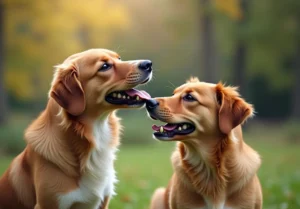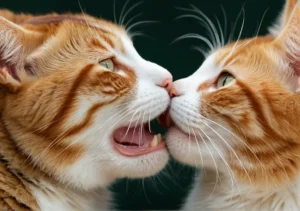Cats are known for their affectionate nature, but have you ever noticed that they seem to be even more loving when they’re hungry? It’s a common behavior among our feline friends, and you may be wondering why this is the case.
The Science Behind Hunger and Affection
Let’s dig into why our feline friends become extra cuddly when their stomachs start rumbling. It all boils down to hunger triggering a release of oxytocin, often referred to as the “love hormone.” This hormone is responsible for bonding and social behaviors, leading cats to seek out comfort and affection from their caregivers when they’re feeling hungry.
When a cat is hungry, their brain chemistry shifts, making them more responsive to touch and interaction. This heightened state of affection is a survival instinct ingrained in them through evolution. So, next time your kitty is rubbing against your legs with a hungry look in their eyes, remember that it’s not just the food they’re after; they also crave that special bond with you.
Evolutionary Adaptations
Cats have a clever trick up their furry sleeves when it comes to getting what they want. Through evolutionary adaptations, felines have learned that displaying affection when hungry increases their chances of receiving food from their human companions. This behavior stems from their wild ancestors, who would have needed to forge strong bonds with their pack to secure resources.
By showing affection when hungry, cats tap into our nurturing instincts and evoke a sense of reciprocity. This clever tactic has been passed down through generations, solidifying the unique relationship between cats and humans. So, the next time your kitty curls up in your lap with a hungry purr, know that it’s not just about the food – it’s about strengthening the bond that has been evolving for centuries.
Extra tip: Providing your cat with regular mealtimes can help reduce their need for affection when hungry, as they learn to associate food with specific times, creating a more stable and predictable routine for both of you.
Bonding through Food
Cats are known for their independent nature, but when it comes to mealtime, they may display affectionate behavior as a way to strengthen their bond with their owners. Sharing food is a primal way for cats to create a sense of trust and security with their human companions. By showing affection when hungry, cats are essentially seeking reassurance that they will be provided for and cared for by their owners. This bonding through food helps establish a deeper connection between the cat and its owner, creating a sense of closeness and mutual dependency.
Attention-Seeking Behavior
When your furry feline friend becomes extra affectionate when hungry, it could be their way of seeking attention and ensuring they are fed promptly. Cats are smart creatures and quickly learn that displaying affection can get them what they want – in this case, a meal. By rubbing against your legs, purring, or even meowing more than usual when hungry, cats are effectively communicating their needs and desires to their owners. This attention-seeking behavior not only helps them get fed but also allows them to feel more secure and loved by receiving the care and attention they crave.
Additional Unique Insight: Cats may also display affection when hungry as a way to manipulate their owners into feeding them more frequently or with tastier food. By turning on the charm, cats can subtly influence their owners’ behaviors and preferences, all in the name of satisfying their hunger cravings. So, next time your cat gives you those big, loving eyes when it’s mealtime, remember they might just be trying to pull at your heartstrings to get an extra treat or two.
The Role of Oxytocin
When it comes to cats being affectionate when hungry, the “love hormone” oxytocin plays a significant role. This hormone is not only responsible for creating bonds between mothers and their offspring but also plays a role in social bonding and attachment in animals, including cats. When a cat is hungry, the release of oxytocin can heighten their desire for affection and attention, leading to more cuddly and loving behavior towards their owners.
Training and Conditioning
Have you ever wondered why cats seem extra cuddly when they’re hungry? Well, it may be due to training and conditioning. Cats are smart creatures and quickly learn that displaying affectionate behavior when they’re hungry can lead to getting fed or receiving treats from their owners. Over time, cats may have associated their hunger with receiving attention and love, leading to them being more affectionate when their stomachs are rumbling.
Additional Insight: – Cats may also show affection when hungry as a way to communicate their needs to their owners. By being extra loving, they might be trying to signal that they require food or care, leveraging their human’s nurturing instincts to get what they want.
Indicators of Hunger
When your cat starts getting a little too clingy and affectionate, it might just be a sign that their stomach is growling! Cats often exhibit subtle signs of hunger, such as meowing more frequently, rubbing against your legs persistently, or even pawing at their food bowl. Keep an eye out for these behaviors to understand when your feline friend is feeling peckish.
And here’s a unique insight for you: Did you know that some cats may also groom their owners excessively when they’re hungry? It’s their way of showing affection and seeking attention, hoping that you’ll pick up on their hunger cues. So, if your kitty suddenly becomes your personal groomer, it might be time to offer them a tasty meal.
Mealtime Rituals
Establishing a consistent feeding schedule is essential for managing your cat’s behavior when they are hungry. Cats thrive on routine, so try to feed them at the same times each day to avoid any unnecessary clinginess or meowing fits. Make mealtime a calm and peaceful experience by creating a quiet feeding area away from distractions.
Additionally, remember to always provide fresh water for your cat to drink, as hydration is just as important as food. By following a regular feeding routine and ensuring your cat has access to both food and water, you can keep their hunger-induced affection in check. And don’t forget to reward good behavior with the occasional treat to strengthen your bond with your furry companion.
Fun Facts About Cats and Food
Cats have a unique relationship with food that influences their behavior in interesting ways. Did you know that cats have taste buds for sweet flavors, but they lack the taste receptors for detecting sugars? This might explain why your cat doesn’t seem interested in your dessert but goes crazy for their favorite savory treats.
Another fascinating fact is that cats are obligate carnivores, which means their diet must consist mainly of meat to meet their nutritional needs. This instinctual preference for protein-rich foods can influence their behavior, making them more affectionate when hungry as they seek out the sustenance their bodies crave.
Additionally, cats are crepuscular, meaning they are most active during dawn and dusk. This natural behavior could explain why your cat becomes more affectionate in the morning or evening when their hunting instincts are heightened, especially if they are hungry and looking for food.
Understanding these fun facts about cats and their relationship with food can help illuminate why your feline friend might exhibit extra affection when their stomach is growling. So, next time your cat is rubbing against your legs or purring loudly, it might just be their way of signaling that it’s mealtime.
Why Cats are Affectionate When Hungry
Have you ever wondered why your cat seems to turn on the charm when they’re feeling peckish? Cats are known for their independent nature, but when hunger strikes, they may become more affectionate towards their human companions as a way of communicating their needs.
In the wild, a hungry cat might display affectionate behaviors towards other members of their social group to garner help in finding food. This instinctual behavior has carried over into domestic cats, leading them to seek out attention and affection from their owners when they’re hungry and in need of a meal.
So, the next time your kitty is rubbing against you or meowing incessantly before mealtime, remember that they are simply tapping into their natural instincts to elicit a feeding response. Embracing these moments of affection can strengthen the bond between you and your feline friend, creating a deeper sense of connection and understanding.
Alex, a passionate animal lover, has experience in training and understanding animal behavior. As a proud pet parent to two dogs and three cats, he founded AnimalReport.net to share insights from animal experts and expand his knowledge of the animal kingdom.




